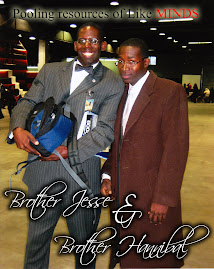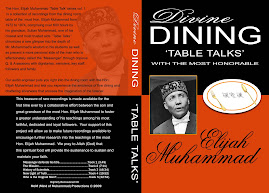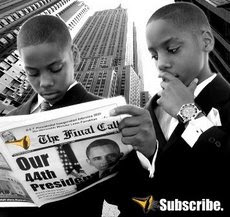The Mad Dog DA and the Mad Dog Media
The Persecution of Michael Jackson
By ISHMAEL REED
Last Thursday, while working on some writing deadlines, I was switching channels on cable. On CNN they were promoting “Black In America," an exercise meant to boost ratings by making whites feel good by making blacks look bad, the marketing strategy of the mass media since the 1830s, according to a useful book entitled “The Showman and the Slave,” by Benjamin Reiss. The early penny press sold a “whiteness” upgrade to newly arriving immigrants by depicting blacks in illicit situations. By doing so they were marketing an early version of a self esteem boosting product. One of the initial sensational stories was about the autopsy of a black woman named Joice Heth, who claimed to be George Washington’s nurse and over one hundred years old. It was the O. J. story of the time. Circus master, P. T. Barnum, charged admission to her autopsy, which attracted the perverted in droves.
And so, if the people broadcasting cable news appear to be inmates of a carnival, there is a connection since the early days of the mass media to that form of show business. According to Reiss, early newspapers were not only influenced by P. T. Barnum, but actually cooperated with him on some hoaxes and stunts.
I would classify CNN’s “Black in America” as a stunt. In preparing for a sequel to the first "Black In America," which boosted the networks ratings (the O. J. trial saved CNN!), CNN rolled out the usual stereotypes about black Americans. Unmarried black mothers were exhibited, without mentioning that births to unmarried black women have plunged since 1976 more than that of any other ethnic group. Then we got some footage that implied that blacks as a group were homophobes even though Charles Blow, a statistician for The New York Times, recently published a chart showing that gays have the least to fear from blacks. Recently, the media perpetrated a hoax that blacks were responsible for the passage of Proposition 8, the California proposition that banned gay marriage. An academic study refuted this claim, but that didn’t deter The New York Times from hiring Benjamin Schwarz to explain black homophobia. Schwarz is the writer who wrote in The Los Angeles Times that blacks who were victims of lynchings in the south were probably guilty.
In the last “Black in America," Soledad O’Brien, CNN’s designated tough love agent against the brothers and sisters, scolded a black man for not ![]() attending his daughter’s birthday party. The aim of this scene was meant to humiliate black men as neglectful fathers. Ms. O’Brien won’t be permitted by her employees to mention that 75% of white children will live at one time or another in a single parent household and that the Gov. of South Carolina’s not showing up for Father’s Day isn’t just a lone aberration in “White America.”
attending his daughter’s birthday party. The aim of this scene was meant to humiliate black men as neglectful fathers. Ms. O’Brien won’t be permitted by her employees to mention that 75% of white children will live at one time or another in a single parent household and that the Gov. of South Carolina’s not showing up for Father’s Day isn’t just a lone aberration in “White America.”
How would CNN promote a “White in America?” The thousands of meth addicts who have abandoned their children? The California rural and suburban white women who do more dope than Latino and black youth? The suburban Dallas white teenagers who are overdosing on “cheese” heroin? Why not? Can’t get State Farm, Ford and MacDonald’s to sponsor such a program? All of these companies are sponsoring “Black in America,” the aim of which is to cast collective blame on blacks for the country’s social problems. For ratings.
During CNN’s carnival act disguised as news, the scene of Zimbabwe’s Prime Minster being urinated upon by a monkey while sitting in his garden drew snickers in the newsroom. This is what passes for coverage of the African continent by CNN.
When the bulletin that Michael Jackson had died flashed across the screen, I was prepared for TV at it’s worst and I wasn’t disappointed. The man wasn’t cold before the familiar adjectives were rolled out. “Weird, bizarre, eccentric,” the traditional language used to disparage artists by the bourgeoisie. Dan Abrams, who made his reputation by convicting O. J. Simpson before the opening arguments of his criminal trial, made a snarky comment about Jackson’s weirdness. Mr. Abrams, a higher up at MSNBC, employs a Hitler admirer named Pat Buchanan. Given Abram’s background, why isn’t that considered weird?
Former Calfornia poet laureate Al Young called to inform me that CNN’s Jeffrey Toobin, another O. J. alumni, and a man who said that blacks shouldn’t be “patted on the head” or “patronized” for believing in O. J. Simpson’s innocence, had made some ugly comments about Jackson. (A star who has had at least a dozen facelifts called into the “Larry King Show” to comment about MJ’s altering his appearance).
Also weird was MSBC’s Savanah Guthries’ air-headed depiction of the trial. (For a list of Ms. Guthries’ false reportings see MediaMatters.com). She said that the evidence against Jackson in the trial was “devastating." So devastating that some legal experts said that Jackson should never have been brought to trial and that the aim of the trial was to seek a pound of flesh from Jackson for being uppity and for putting the name of Thomas W. Sneddon Jr., a vindictive District Attorney, into a song. In my opinion it was the prosecution of Jackson by this District Attorney, who, among other things, violated Jackson’s fourth amendment rights, and made disparaging remarks about the star during a press conference, and the side-show pro prosecution media coverage that killed Jackson.
In my lengthy examination of the trial printed in my book, “Mixing It Up, Taking on The Media Bullies,” I concluded that though millions of Jackson’s fans celebrated his acquittal, the District Attorney, who was allowed to squander the California taxpayers’ money so that he might humiliate a rich black man, whom he felt had sassed him, was the victor. At the beginning of the trial, Jackson was dancing on top of a van. During the trial he had to be hospitalized. At the end, he was a frail emaciated wreck.
Because of the malicious prosecution of Jackson by Sneddon and Sneddon’s claque in the media, Jackson will always be regarded as a pedophile. (When the trial opened, a USA Today / CNN / Gallup Poll found that 72% of whites and 51% of Blacks believed that the charges against Jackson were “Definitely” or “Probably” true.) Wherever “Mad Dog” Sneddon, this hateful man might be in his retirement, he can gloat over the death of the man against whom he waged a vendetta with all of the power of the state at his disposal. Sneddon even tried to introduce photos of Jackson’s genitals during the 2005 trial, which proved too much even for the pro prosecution judge.
Of course, none of Sneddon’s abuse or the abuse of Jackson by his accusers was mentioned by an old corporate media, out of touch and on life supports. For infotainers like Katie Couric, Jackson’s father Joe was MJ’s sole abuser. In the eyes of yesterday’s media, black fathers are the principal actors in domestic violence.
Guthrie also said that the prosecution “had conducted mini trials within the trial,” which brought up “a whole history of prior bad acts of molestation.” She was referring to 1994 case in which Jackson was accused of pedophilia by a youngster who, according to writer Mary Fisher, a serious journalist, was used by his father to wrest some cash from Jackson. In"Mixing It Up,” I summarized Mary Fisher’s serious and thorough investigation that was originally published in GQ, October, 1994, under the title “Was Michael Jackson Framed?” Jackson settled out of court because Johnnie Cochran didn’t want him to face one of those all white suburban juries that O. J. faced.
Fisher wrote: “It’s a story of greed, ambition, misconceptions of part of police and prosecutors, a lazy and sensation-seeking media and the use of a powerful, hypnotic drug. It may also be a story about how a case was simply invented.”
Fisher claimed that the first case arose from the ambitions of the thirteen-year-old accuser’s stepfather, Evan Chandler, who exploited Jackson’s friendship with his son. At one point, he asked Jackson to build him a house. Fisher said that the child denied being abused by Jackson until he was administered the drug sodium amytal, which is known to induce false memory. Chandler refused to be interviewed for the article and refused to appear on the Today Show, where Fisher repeated her charges before a nationwide audience. She said that the whole scheme was concocted by the child’s stepfather to destroy the superstar.
None of the media descriptions of Jackson’s career, including a superficial pop-driven survey of the star’s career by Anderson Cooper, referred to the 2005 plaintiff’s lies and his mother’s shabby history of conning individuals and institutions including J. C. Penney’s, which she accused of sexual abuse. She claimed that she had been “fondled inappropriately” by store personnel. Documents also hinted that “…the mom rehearsed her children to corroborate her story.”
During the 2005 trial, Jackson’s Attorney, Tom Mesereau Jr. got the teenage boy to admit that he lied under oath during the J. C. Penny case. USA Today reported on March 1, 2005, that the mother used the boy as a prop to get money from Mike Tyson, Adam Sandler, Jim Carrey, Jay Leno and others, “even though insurance was paying his bills." Linda Deutsch, one of the last of hard-nosed shoe leather journalists, reporting for the Associated Press on March of 2005. said that Mesereau got the 15 year old to admit that he’d told Jeffrey Alpert, a school official that “nothing happened" between Jackson and him.
Connie Keenan, editor of Mid Valley News, wrote of a hoax that the boy’s mother perpetrated on that newspaper. She made a pitch that her son needed medical care and that she had no financial means to provide it. During the first week of the newspaper’s appeal, the mother received $965 in donations. It turned out that the boy was being treated at Kaiser Permanente in Los Angeles with no cost to the family. Connie Keenan concluded that “My gut level, she’s a shark. She was after money. My readers were used. My staff was used. It’s sickening."
While referring to Jackson as “bizarre” none of the cable reporting about Jackson’s death cited the bizarre courtroom testimony of the plaintiff’s mother, Janet Arvizo. At one point during her testimony, she said that feared her children would disappear from Neverland, Jackson’s ranch, in a hot air balloon.
On Apr 18, 2005, Agence France-Presse reported “The mother of Michael Jackson's young molestation accuser claimed that she feared her children would be spirited away from the star's Neverland Ranch in a hot air balloon. In some of the most bizarre testimony of Jackson's frequently surreal trial, the woman revealed that she told police she feared her three kids would vanish from Neverland into California's blue skies.
"Did you tell the sheriff that you thought your children might disappear in a hot air balloon from Neverland?" Jackson's lead lawyer Thomas Mesereau asked the woman under cross-examination.
"I made them aware," she said.
Finally, in November of 2006, according to TMZ, Janet Arvizo pled no contest to a welfare fraud charge in Los Angeles. She was ordered to 150 hours of community service and to pay $8, 600 in restitution. During Jackson's trial, Arvizo invoked the Fifth regarding welfare fraud. Seems that she applied for welfare even though she’d received a $150, 000 settlement from J. C. Penny’s. Even with the mother’s behavior and the boys lies, Nancy Grace, commenting on the death of Jackson, said that she was surprised by the not guilty verdict in the Jackson trial. No wonder Ms. Grace has been called” a cheerleader for the prosecution.”
Yet, these journalists insist that their news product is superior
to that of bloggers. (Journalistic bottom feeder, Diane Dimond, a Sneddon fan and Jackson stalker was invited by MSNBC to weigh in during which she was allowed to engage in doofus speculation much of it ugly about Jackson’s life and death)
to that of bloggers. (Journalistic bottom feeder, Diane Dimond, a Sneddon fan and Jackson stalker was invited by MSNBC to weigh in during which she was allowed to engage in doofus speculation much of it ugly about Jackson’s life and death)
G. Q. s Mary Fisher accused her colleagues of lazy journalism of the sort that defamed Jackson in life and in death. Maureen Orth from Vanity Fair didn’t read Mary Fisher’s findings. She was on the Chris Matthews Show accusing Jackson of “serious felonies” involving pedophilia. Another reporter who seemed to nullify the 2005 Jackson jurie's decision was “Morning Joe’s” adjunct bimbo, Courtney Hazlett. She said that there would be no pilgrimage to Neverland and as there was to Graceland, because “bad things happened at Never Land." We are led to believe that Presley and his entourage spent their days at Graceland drinking milk and reading each other passages from the scriptures.
All of these opinions seem to indicate that Cable’s talking heads have taken it upon themselves to nullify the judgment of juries whenever they please. This all white electronic jury has placed itself above the law.
But at least Jackson didn’t suffer from the kind of hi tech lynching accorded the tragic Patsy Ramsey. For years cable, which now not only calls elections but acts as judge and jury, accused her of murdering her child. Only after her death was it found that she was innocent.
If the reporting on Jackson’s death by the media wasn’t salacious and ignorant enough, it didn’t get any better the next day, June 26.
Ignoring Jackson’s philanthropic pursuits and contributions to forty charities, on the “Today Show,“ it was all about what happened to all of the nigger’s money and whether he died from too many drugs and what’s to become of his children, questions meant to attract the prurient. Again, Diane Dimod was invited on to spread scurrilous unconfirmed rumors about the dead star. Some of the modern day carnival barkers like Chris Matthews expressed surprise that Jackson’s death resulted in such an outpouring of worldwide mourning. This is what happens to people like Matthews who dwell in an insulated white supremacist bubble (that includes the Anglo wannabe and Churchill admiring Irish among them) which holds that a narrow cultural strip between New York and Washington represents the world.
I would like to have seen more independent African-American journalists comment on the passing of Michael Jackson, but, according to Richard Prince, who runs a media blog for the Maynard journalism Institute, hundreds have lost their jobs over the last two years, including Pulitzer Prize winners like Les Payne.
With the absence of black and Latinos from journalism, the media have become a spare all white jury always ready to take down a black celebrity for the entertainment of the types who used to attend those acts created by P. T. Barnum.
Ishmael Reed is the publisher of Konch. His new book, "Mixing It Up, Taking On The Media Bullies" was published by De Capo.http://www.counterpunch.org/reed06292009.html
Information Researched By: Sister Anonymous

 Above is a sneak preview of the cover of this week's
Above is a sneak preview of the cover of this week's 






































